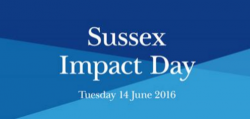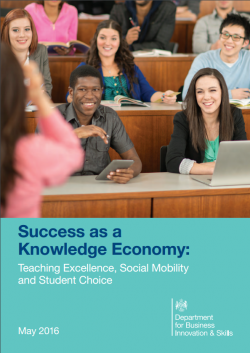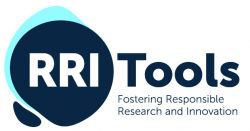| Message from the Research Staff Office |
|
Hello everyone
Welcome to this issue of the Sussex Researcher. This month has seen some significant announcements from Government that will affect both teaching and research aspects of Higher Education and could signal major changes for UK institutions. Take a look at the article below about the HE White paper to find out more.
The Research and Enterprise Division is getting ready for Sussex Impact day on 14th June. We hope to see many of you there and hopefully some of you will be involved in the 2016 Impact Awards. In order to raise the profile of early career researchers across the University, the Research Staff Office will be following on from the Impact Awards with a new Spotlight section of our newsletter and website. Spotlight will profile the excellent and varied research being carried out by Sussex Researchers. We are really looking forward to sharing your stories, watch this space in future issues for more information.
Best wishes,
Natalie James (Research Staff Officer) and Kirsty Bridger (Researcher Development Coordinator)
|
| Drowning in data? Using Data Management Plans for your research – Quantitative Data |
|
Thursday 2nd June, 14.00-16.00 - Book a place
Research data is a valuable resource for both the individual researcher and the research community, and many funders now require a Data Management Plan (DMP) to be submitted as part of a funding bid. This workshop will look at how you can keep your data organised, secure and reusable for the future. We will discuss funder expectations, and use the Digital Curation Centre's DMPOnline tool to develop clear plans to support your own research, whether you are writing a funding bid or planning a project.
Whilst open to everyone, this workshop will have a focus on researchers working with quantitative data.
During this workshop participants will:
- Consider how to implement good practice in research data management, including organising, saving, backing up and describing their data
- Investigate issues around sharing and re-use of their data
- Explore tools that help with RDM, including practical use of the DMPOnline to create plans to support funding bids
|
| News |
| 2016 Researcher Appraisals |
|
The time of year has come around again when you should participate in an appraisal meeting. Appraisals generally take place between May and August each year, but may vary depending on your School/Department's processes.
The annual appraisal is an opportunity to reflect on and discuss the progress you have made in your research and career development over the course of the year. It is also a chance to have an open discussion with your appraiser about how you would like to develop your career over the forthcoming year and beyond.
The appraisal focusses equally on your work objectives and career development objectives and you should ensure that you make time to discuss both during your appraisal meeting.
Last year we worked alongside HR to introduce new appraisal forms and guidance for researchers. The new documents are more closely aligned to research career pathways and ensure career development forms a key component of the discussion. All research staff should be appraised using the forms that are available to download at the link below.
Download the research staff appraisal documents and guidance here.
|
| Sussex Impact Day - Tuesday 14th June |
|
 The second Sussex Impact Day will take place on Tuesday 14th June, 2016 in the Jubilee building. The day aims to develop, demonstrate and celebrate the range of impact being created by Sussex researchers. The second Sussex Impact Day will take place on Tuesday 14th June, 2016 in the Jubilee building. The day aims to develop, demonstrate and celebrate the range of impact being created by Sussex researchers.
There will be daytime workshops (open to all faculty and research staff) designed to stimulate discussion about impact, and to provide support to researchers to achieve impact in their work.
This year's Sussex Impact Day includes a strand of workshops specifically for early career researchers and those that are newer to the impact agenda. This is Strand 4, 'Impact for doctoral and early career researchers and anyone new to impact'.
The day will be followed by an evening reception where the second Sussex Impact and Research Awards will be presented. Booking for the sessions and further information is available here.
|
| Higher Education White Paper |
|
 On 17th May 2016 the UK Government released the Higher Education White Paper, "Success as a Knowledge Economy: Teaching Excellence, Social Mobility and Student Choice"" outlines the Government's plans for Higher Education reforms. On 17th May 2016 the UK Government released the Higher Education White Paper, "Success as a Knowledge Economy: Teaching Excellence, Social Mobility and Student Choice"" outlines the Government's plans for Higher Education reforms.
Headlining the reforms is the new Teaching Excellence Framework (TEF), which will scrutinise teaching practices and environments in all UK Higher Education Institutions. TEF will be phased in with a pilot in 2016/17 followed by a full exercise the following year.
Also included in the White Paper are more details about how the Government intends to reform the research funding environment in the UK. Key to these reforms is the creation of a new organisation, UK Research and Innovation (UKRI) which will bring together the seven current research councils, Innovate UK and the research elements of the Higher Education Funding Council for England (HEFCE).
The White Paper sets in motion a significant period of change in UK Higher Education affecting both teaching and research and it will be interesting to see how this plays out over the coming months and years.
Read the HE White Paper.
|
| Responsible Research and Innovation Toolkit |
|
 Academics, funders and policymakers are being asked to consider the societal impact of their work using the Responsible Research and Innovation (RRI) Toolkit, launched by University College London in April. The toolkit is an output of a project funded by the EU 7th Framework programme. Academics, funders and policymakers are being asked to consider the societal impact of their work using the Responsible Research and Innovation (RRI) Toolkit, launched by University College London in April. The toolkit is an output of a project funded by the EU 7th Framework programme.
The toolkit contains more than 350 manuals, guidelines, catalogues and examples of well-implemented RRI. Users are able to search by feilds including Ethics, Gender, Governance, Open Access, Public Engagement and Science Education.
Explore the RRI Toolkit here.
The toolkit also offers a Self-reflection Tool which aims to help users reflect on the implementation of RRI in their daily working environment and on which strategies are most useful for individual practice. Use the Self-reflection Tool here.
To find out more about RRI visit the website.
|
| ScienceGeist |
|
 For the past three years the Swiss National Science Foundation has been curating a portal of science policy news, collecting the latest views and opinions from blogs, international media and research journals. For the past three years the Swiss National Science Foundation has been curating a portal of science policy news, collecting the latest views and opinions from blogs, international media and research journals.
Launched publicly in March 2016, ScienceGeist.com is an open searchable portal that aims to capture the essence of what's been going on in science policy.
Users are able to subscribe to a weekly newsletter and enter their own articles to be approved.
Take a look at ScienceGeist here.
|
| Vitae focus on the theme of Mentoring & Coaching |
|
#VitaeHangout - Thursday 16th June - Will Getting a Mentor Boost your Career?
 As part of their focus on mentoring and coaching this month, Vitae are hosting a free, live online session to discuss mentoring as a valuable personal and professional development tool. This #VitaeHangout will take place Thursday 16th June, 2-3pm. Find more details here. As part of their focus on mentoring and coaching this month, Vitae are hosting a free, live online session to discuss mentoring as a valuable personal and professional development tool. This #VitaeHangout will take place Thursday 16th June, 2-3pm. Find more details here.
Vitae Poll
Vitae are also running a poll to find out more about how mentoring and coaching (which both aim to help an individual clarify their goals and/or improve their self-awareness, skills or knowledge) are being used by and for researchers worldwide and what the benefits can be. You can participate in the poll here.
|
| Opportunities |
|
If applying for funding, remember to check funders' eligibility criteria carefully and discuss the opportunity with your host institution/department prior to preparing any applications.
|
| Digital Humanities at Oxford Summer School, 4th-8th July 2016 |
|
The Digital Humanities at Oxford Summer School offers training to anyone with an interest in the Digital Humanities, including academics at all career stages, students, project managers, and people who work in IT, libraries, and cultural heritage. Delegates follow one of the week-long workshops, supplementing their training with expert guest lectures.
Bed and breakfast, en-suite accommodation will be available at an Oxford college on a first-come-first-served basis. Delegates can also join events each evening.
Workshops include:

- An Introduction to Digital Humanities
- An Introduction to the Guidelines of the Text Encoding Initiative
- Analysing Humanities Data
- Digital Musicology
- From Text to Tech
- Humanities Data: A Hands-On Approach
- Linked Data for Digital Humanities
- Social Humanities: Citizens at Scale in the Digital World
More information
|
| Sir Henry Wellcome Postdoctoral Fellowships |
|
 The Wellcome Trust invites preliminary applications for the Sir Henry Wellcome postdoctoral fellowships. These enable newly qualified postdoctoral researchers to make an early start in developing their independent research careers, working in the best laboratories in the UK and overseas. Candidates are expected to identify an important biomedical research question and to develop and deliver a personal programme to achieve their research aims. The Wellcome Trust invites preliminary applications for the Sir Henry Wellcome postdoctoral fellowships. These enable newly qualified postdoctoral researchers to make an early start in developing their independent research careers, working in the best laboratories in the UK and overseas. Candidates are expected to identify an important biomedical research question and to develop and deliver a personal programme to achieve their research aims.
Fellowships provide £250,000 over four years, covering the basic salary as set by the host institution with a trust enhancement for basic science fellows, and research expenses such as materials and consumables, animals, travel and overseas subsistence, support to attend scientific meetings, small items of equipment, and fieldwork and data collection.
More information
Application deadline: 10th October 2016
|
|

